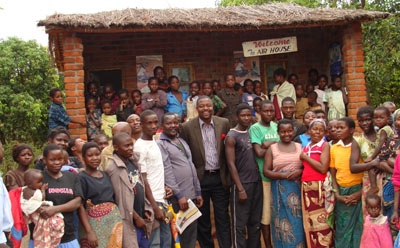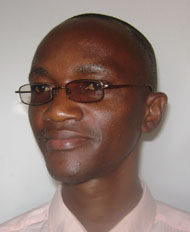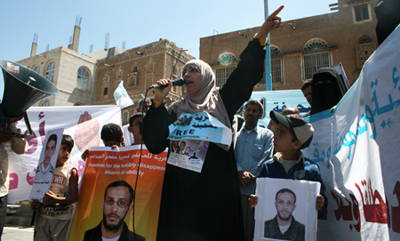
The Malawian who harnessed the airwaves
After The Boy Who Harnessed the Wind, the autobiography of ingenious 22-year-old William Kamkwamba’s homemade electric windmill in Malawi, comes “the boy who harnessed the airwaves” by building a radio station with rudimentary materials. The tale of 21-year-old Malawian Gabriel Kondesi also showcases the inventiveness spawned by life in this impoverished, landlocked nation in southeastern…
Free Speech Protection Act could slow ‘libel tourism’
Free press advocates in Britain are looking to a bill stuck in the U.S. Congress for moral support in the fight to reform England’s draconian defamation laws. The U.S. bill, the Free Speech Protection Act 2009, is itself the product of those laws, which have made London the capital of “libel tourism.”
Shakeup at China’s leading investigative magazine
You wouldn’t have heard it from her, but Hu Shuli resigned from her post as editor of Caijing magazine on Monday. The battle over political coverage and finances at Caijing (cai is “finance” and jing is “economics”) had been reported for about three months, but the missing component in the coverage was Hu herself—she has…

Sierra Leone’s criminal libel law sparks barber boycott
My looks have completely changed in recent months. Long hair now colonizes my chin and my head. Never in my adult life have I waited longer than a week without a shave or a haircut, let alone for four months. One ends up doing the strangest things for press freedom in Sierra Leone.
Playing the spy card against WSJ in Pakistan
Last Thursday, Pakistan’s The Nation newspaper published a reckless and unsubstantiated story accusing Wall Street Journal South Asia correspondent Matthew Rosenberg of being a spy. It’s an accusation that gravely endangers Rosenberg’s safety. Wall Street Journal Managing Editor Robert Thomson responded with a scathing letter to The Nation’s editor, Shireen Mazari, expressing his disgust at the publication…
Op-ed: The Kremlin Can’t Have It Both Ways
Jointly authored by CPJ’s Kati Marton and Nina Ognianova, an op-ed piece is running on The New York Times’ Web site today and will be published in the November 10 edition of The International Herald Tribune. The article is a follow-up to Marton and Ognianova’s mission to Russia to launch our special report Anatomy of Injustice: The…
Tirana attack prompts comments from editor, businessman
Our news alert on Wednesday detailing a vicious attack on Albanian editor Mero Baze elicited e-mail comments from both victim and a businessman accused in the attack. Baze said he is recovering but is experiencing head pain. He also echoed reported witness statements that identified Rezart Taci, a principal in local oil companies, as being…
Toronto’s Citizen Lab uses forensics to fight online censors
A basement in the gray, Gothic heart of the University of Toronto is home to the CSI of cyberspace. “We are doing free expression forensics,” says Ronald Deibert, director of the Citizen Lab, based at the Munk Centre for International Studies. Deibert and his team of academics and students investigate in real time governments and…

Just off Freedom Square in Yemen
Swathed in the traditional black face veil, or niqab, Yemeni women brandish banners with images of disappeared and imprisoned journalists. Every Tuesday, in Yemen’s capital city of Sana’a, Tawakul Karman, chairwoman of Women Journalists Without Chains (WJWC), leads these women into Freedom Square to demonstrate.